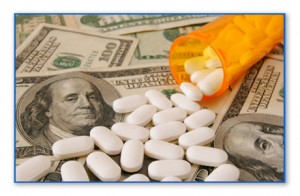
DSM Panel Members Still Getting Pharma Funds
Despite promises to cut back on Pharma funds, 56% of DSM V panel members have reported industry ties— Zero improvement over the percent of DSM-IV members.


Despite promises to cut back on Pharma funds, 56% of DSM V panel members have reported industry ties— Zero improvement over the percent of DSM-IV members.
First the good news: The Physician Payment Sunshine Act is now law, signed by President Obama as part of the health care bill overhaul. Starting in 2012, drug and medical device companies must report all consulting, speaking and other payments to doctors and teaching hospitals in excess of $100 annually to the federal Department of Health and Human Services, which will post the payments on a public website. This is an important first step toward making transparent the pervasive financial ties between doctors who are studying or promoting specific drugs and medical devices and the companies that manufacture these products.
Two essays published in separate periodicals this week raise troubling questions about the extent to which psychiatrists may be unduly influenced by the pharmaceutical industry, and how this relationship may effect public trust in psychiatry. The upshot? The concern about corruption, or at least the appearance of corruption is palpable. Sigmund Freud (see photo) would not be pleased. Interestingly, one of the authors is Tom Insel, the director of the National Institute of Mental Health.
Critics say there’s a damaging conflict of interest with the financial ties between drug companies and experts who are revising the Diagnostic and Statistical Manual of Mental Disorders (DSM-V), as well as guidelines on the best treatments. This question has been a big topic of debate not just in scientific and academic journals it also concerns the public welfare.